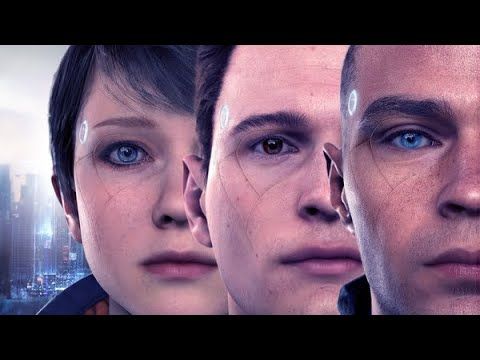
Exploring Narrative Choices in “Detroit: Become Human”
In the world of gaming, storytelling has become an integral part of the player’s experience. Quantic Dream’s “Detroit: Become Human” takes this concept to the next level, offering players a thrilling and immersive narrative-driven adventure. This article will delve into the game’s unique narrative choices and highlight their impact on the overall gameplay and player agency.
The Storyline: An Engaging and Complex Narrative
“Detroit: Become Human” is set in Detroit, Michigan, in the year 2038, where humans coexist with advanced androids. Players follow the lives of three main protagonists – androids named Connor, Kara, and Markus – as they navigate a world filled with moral dilemmas and social unrest. Each character has their own distinct storyline, which intersects and intertwines based on the player’s choices.
Choice and Consequence
One of the most striking features of “Detroit: Become Human” is the emphasis on choice and consequence. Almost every action and decision made by the player has far-reaching repercussions, determining the fate of characters and shaping the overall narrative. The game employs a “butterfly effect” mechanic, where even small choices can lead to significant divergences in the story.
Each choice is presented with a time limit, enhancing the sense of urgency and replicating the pressure faced by the characters in their respective situations. Whether it’s negotiating with hostile humans, interacting with other androids, or solving intricate puzzles, players are constantly faced with moral dilemmas that force them to think on their feet.
Morality and Ethical Considerations
The narrative choices in “Detroit: Become Human” often confront players with thought-provoking moral and ethical dilemmas. Should an android prioritize fulfilling its mission or prioritize its own survival? Does an android’s violence in self-defense justify its actions or diminish its legitimacy within society? These are just a few examples of the weighty decisions players must confront throughout the game.
The game prompts players to consider the consequences of their choices, not only in terms of the immediate story but also in the broader context of societal implications. By exploring different narrative paths and making contrasting choices, players gain insights into the complexities of human-machine interactions and are encouraged to question their own beliefs and biases.
Player Agency: A Personalized Experience
With its branching narrative system, “Detroit: Become Human” offers an unprecedented level of player agency. The decisions made by players have a direct impact on the development of the story, often resulting in multiple branching paths and alternative endings. This dynamic storytelling approach ensures that no two playthroughs are the same, enhancing replayability and encouraging players to explore different outcomes.
Character Development and Relationships
The player’s choices not only shape the trajectory of the overall story but also influence the development of each character’s personality and relationships. Players can choose whether their android characters embrace or reject their programming, leading to radically different character arcs and outcomes.
The relationships between the characters evolve based on player choices, allowing for deep and meaningful connections that resonate throughout the gameplay. The emotions and motivations of the characters are intricately woven into the narrative, providing a rich and immersive gaming experience.
Conclusion
“Detroit: Become Human” is a testament to the power of narrative choice in gaming. By immersing players in a morally complex world where androids strive for freedom and equality, the game challenges players to evaluate their own values and expectations. With its engrossing storyline, thought-provoking choices, and unparalleled player agency, “Detroit: Become Human” redefines the boundaries of interactive storytelling in the tech niche.


